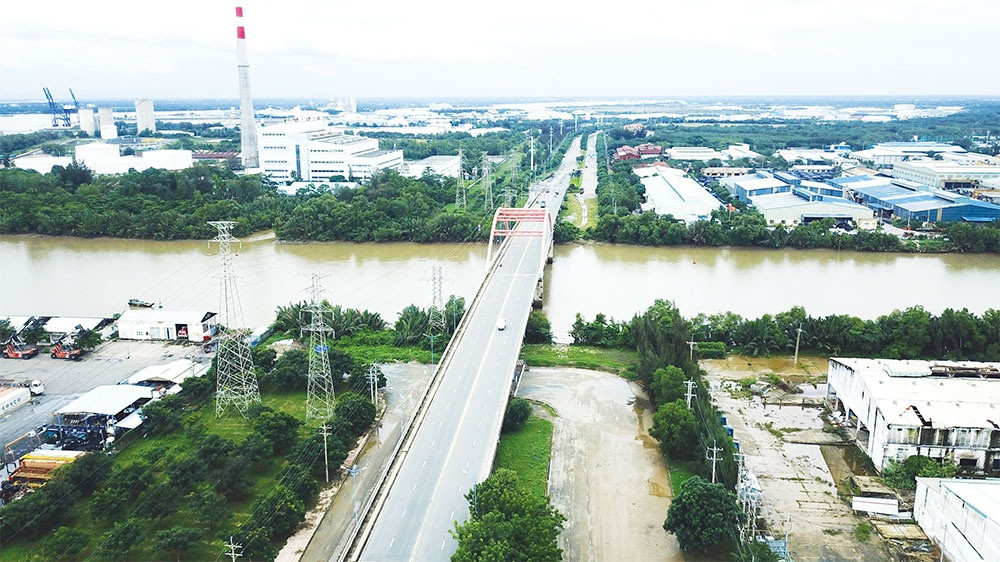Amata Industrial Park in the southern province of Dong Nai, which Thailand’s Amata Group has invested in, is currently transferring to an eco-industrial park (eco-IP) to align with the Global Eco-Industrial Park Programme.
 |
According to the United Nations Industrial Development Organization (UNIDO) report, the park has worked with the Ministry of Planning and Investment to implement a pilot eco-IP model, and there are 30 criteria to meet international standards.
Amata IP currently fits most of these criteria, and it is on the way to meeting the remaining criteria to become an eco-IP by the end of 2023. “However, it is not easy to meet the full criteria because it depends on the connection and consensus of businesses in the park,” UNIDO noted.
The Amata IP investor has said it is facing difficulties reusing treated wastewater despite meeting ISO standards. Meanwhile, salvaging natural resources and energy is among the leading criteria for determining eco-industrial parks.
“Each manufacturer has different production processes and standards. Therefore, it is complicated to create a business community in which they can create a circular network for reusing each other’s water, treated waste and energy sources. There has yet to be comprehensive planning,” an Amata Group representative said at a workshop organised in Ho Chi Minh City on September 17.
The workshop, on eco-IP development and implementation, was held by the Ministry of Planning and Investment (MPI), UNIDO, and the Swiss State Secretariat for Economic Affairs.
“Amata’s IPs in Thailand have reused treated water for many years. However, in Vietnam, we cannot take advantage of this precious resource because the current regulations on using treated wastewater for irrigation and daily life are not specific. Each year, Amata IP must discharge 3 million cubic metres of treated water into the environment, which is a waste,” the representative added.
Many industrial park developers are concerned about the lack of a price bracket for reused water, which fails to motivate enterprises to develop eco-industrial parks when the output for the treated water has yet to be determined.
Bruno Jaspaert, general director at DEEP C Industrial Zones in Haiphong, said that water was the most important resource for circulation in an ecological IP.
“Although we always try to become a pioneer in developing the eco-IPs in Vietnam. In reality, the quality of the treated wastewater from the park, after being tested, shows better parameters than the water provided by water companies. Besides, the treated wastewater has ISO certification. However, the enterprises cannot sell to each other in DEEP C due to lack of a license to do so,” he said.
Danang Hi-tech Park and Industrial Zones Authority and the Haiphong Economic Zone Authority have the same concerns about creating a symbiotic relationship and have built similar proposals relating to building a legal framework for reusing treated production waste and wastewater.
Despite many obstacles, Vietnam is determined to transition traditional IPs to ecological models gradually. The government approved the plan that by 2030, a total of 40-50 per cent of localities will have plans to make the shift. Between 8 and 10 per cent of localities will add eco-IPs in their socioeconomic development planning.
“The transition to a more circular model is the key factor to improving the competition capacity and simultaneously ensuring sustainable development for every IP as well as economic zones, localities, and the economy,” said deputy minister of Planning and Investment Nguyen Thi Bich Ngoc.
“The MPI will consult the business community and localities to build suitable solutions. The important thing is that the success in this transition process also depends on the support of finance and technology from developed countries.”
Localities like Danang also have plans to switch existing IPs to ecological models as well as develop new ones. Danang People’s Committee last month called for investors to develop the 120-hectare Hoa Cam IP with total funding of $95.7 million. A key criterion is that the investors’ equity accounts for at least 15 per cent of the project’s total investment.
Ho Chi Minh City People’s Committee will also convert Hiep Phuoc IP into the city’s first eco-IP. Established in 2007, Hiep Phuoc is in Nha Be district on Ho Chi Minh City’s outskirts. It is the city’s largest IP, covering nearly 1,700ha.
Source: VIR